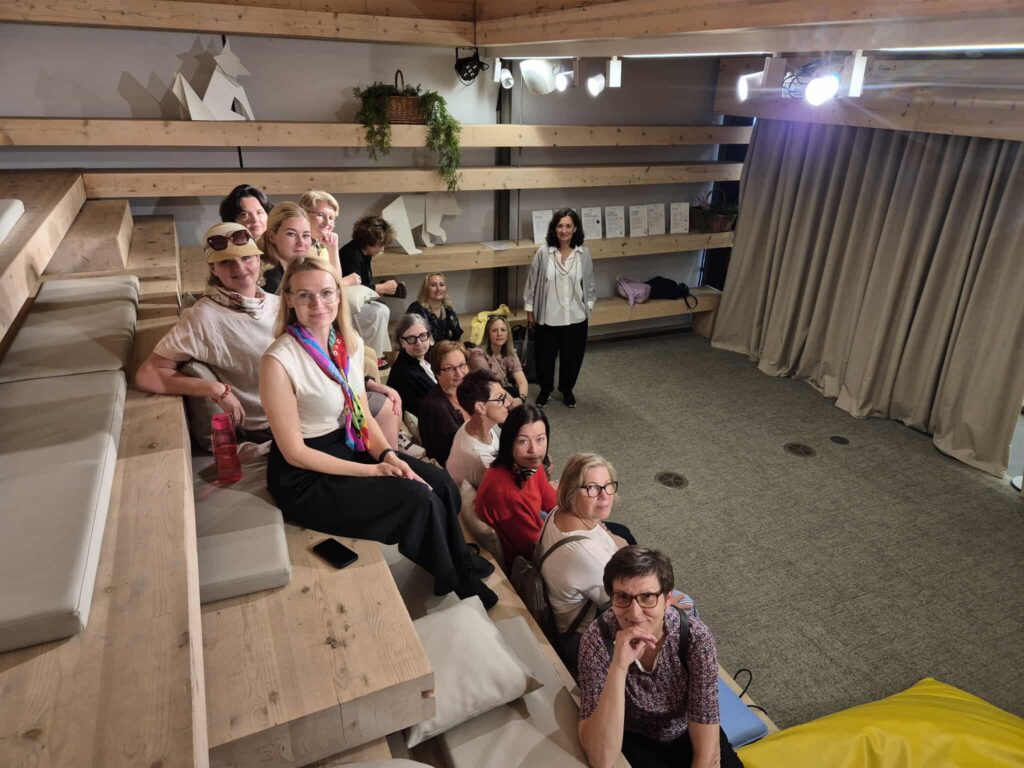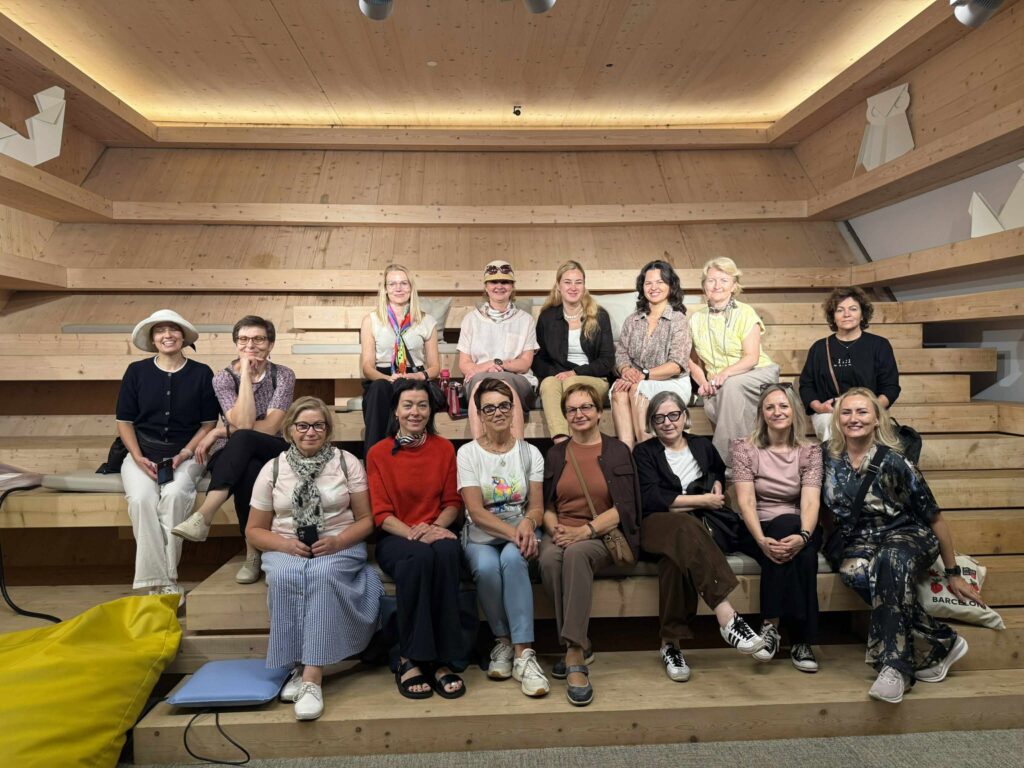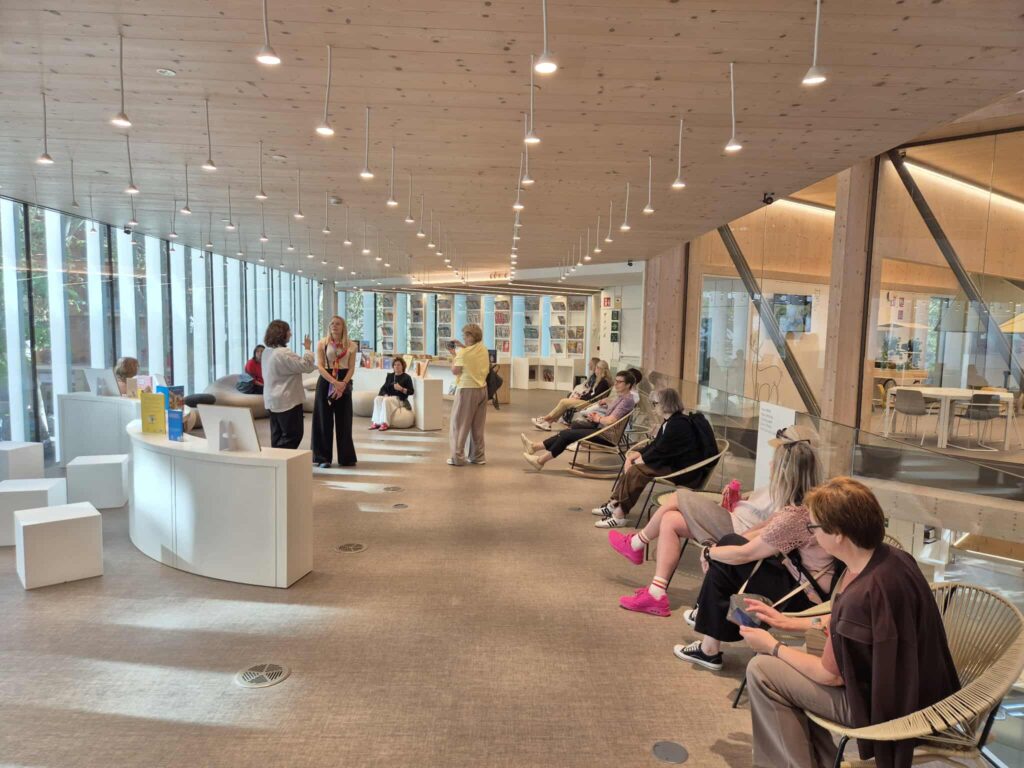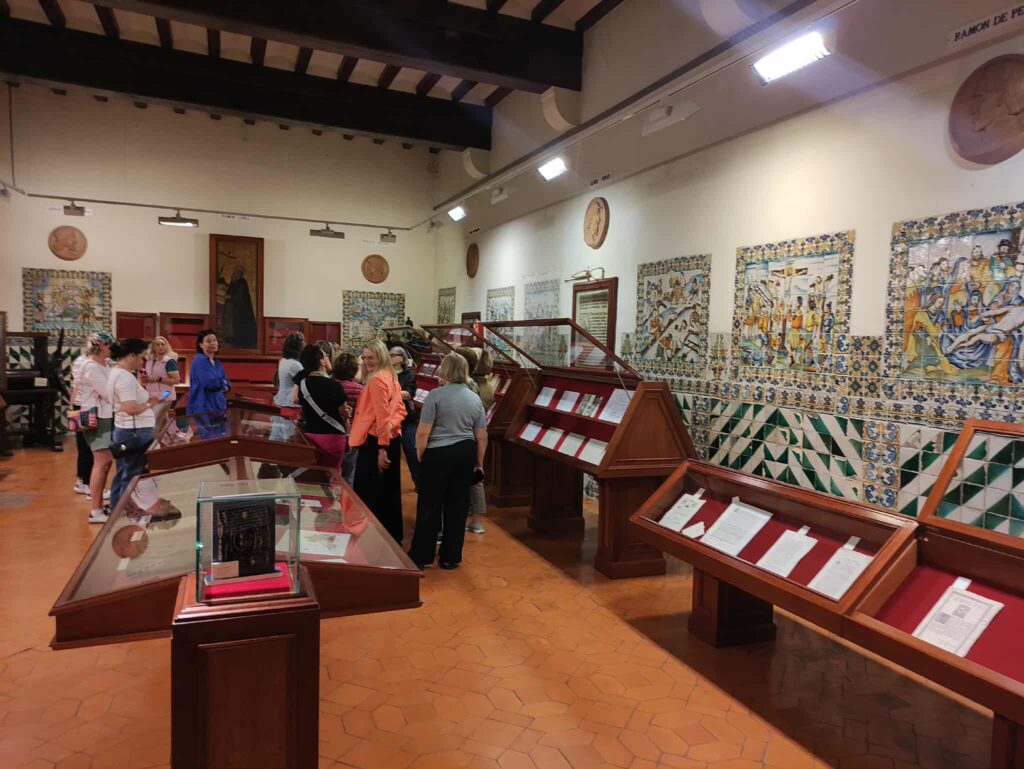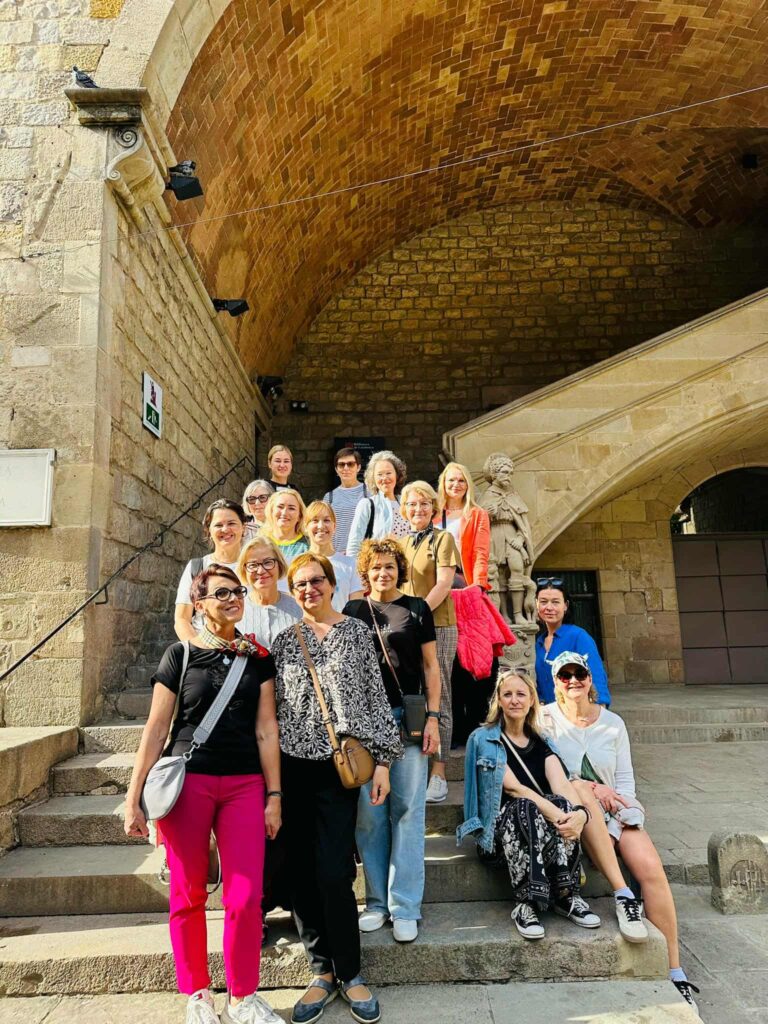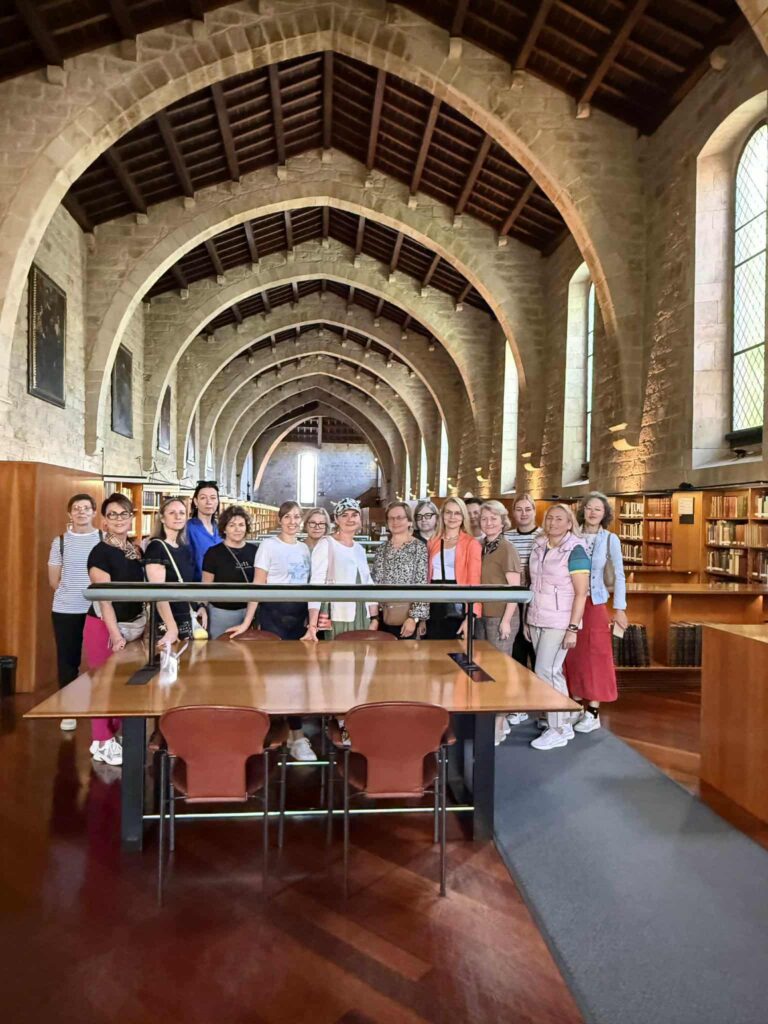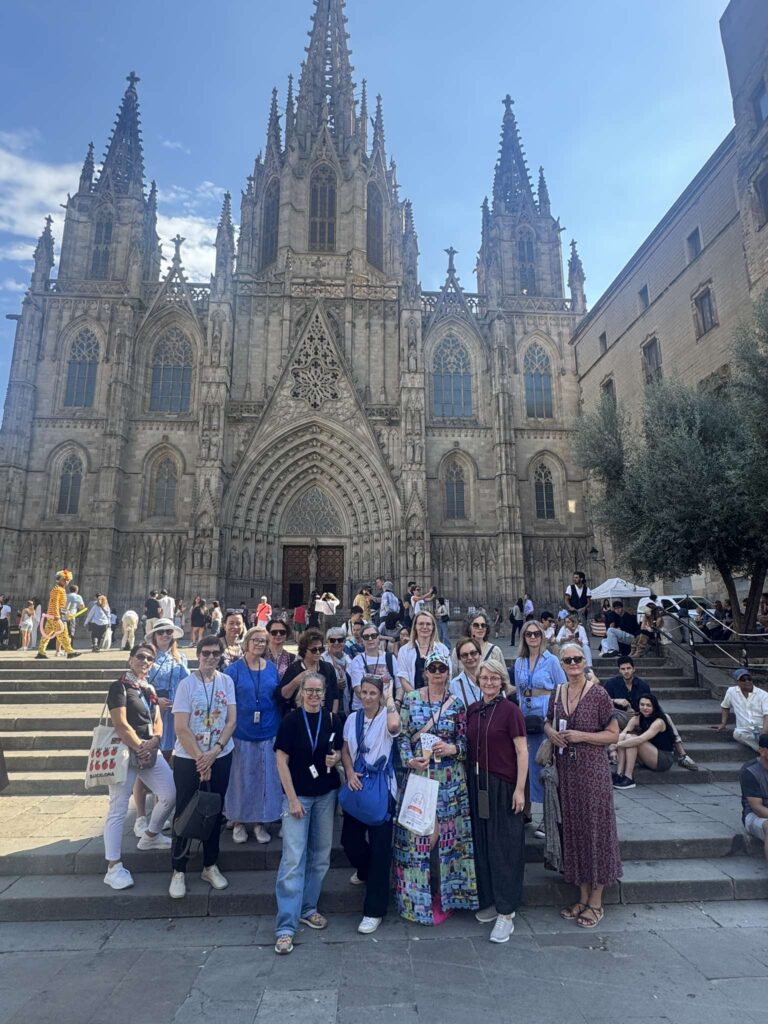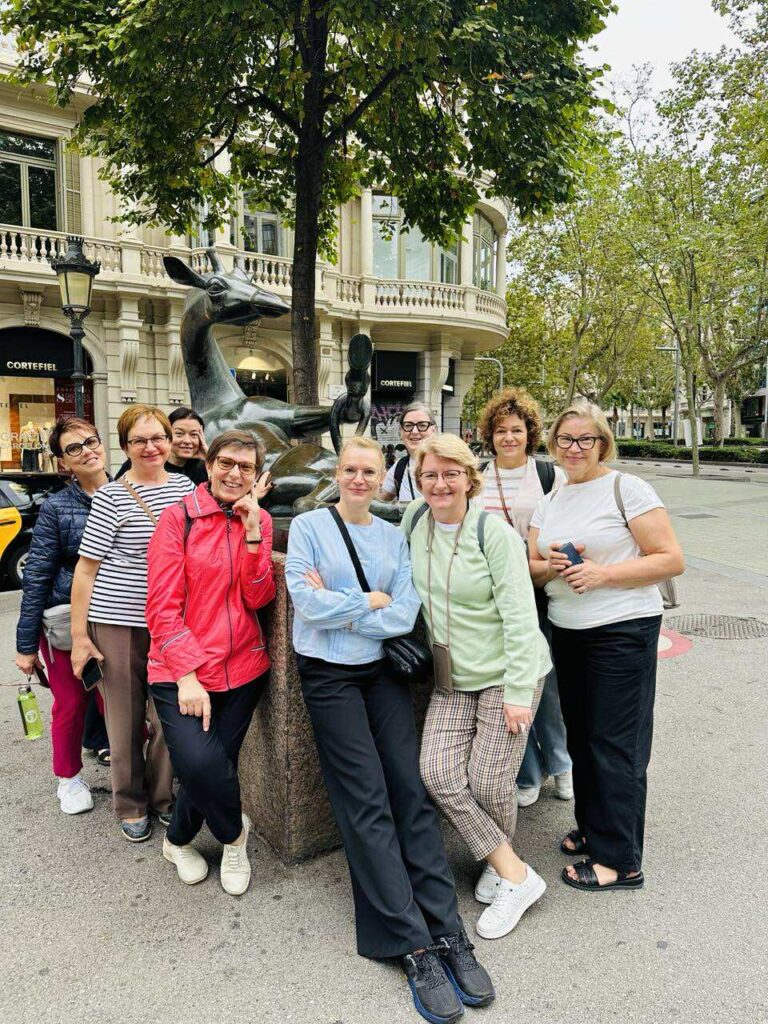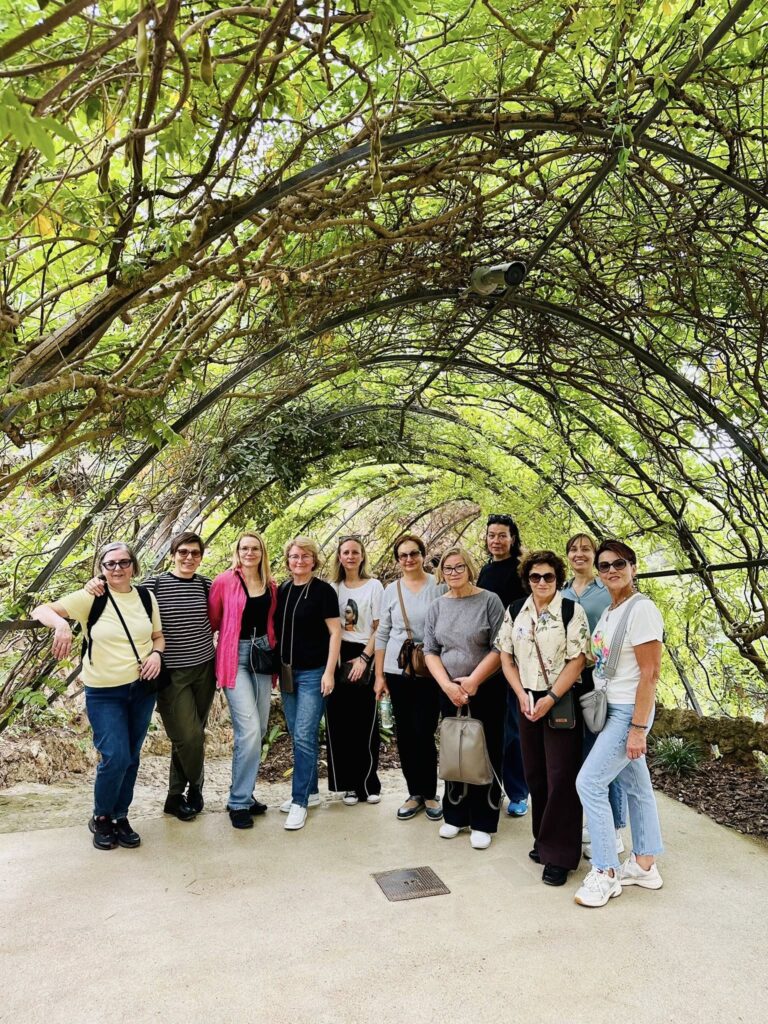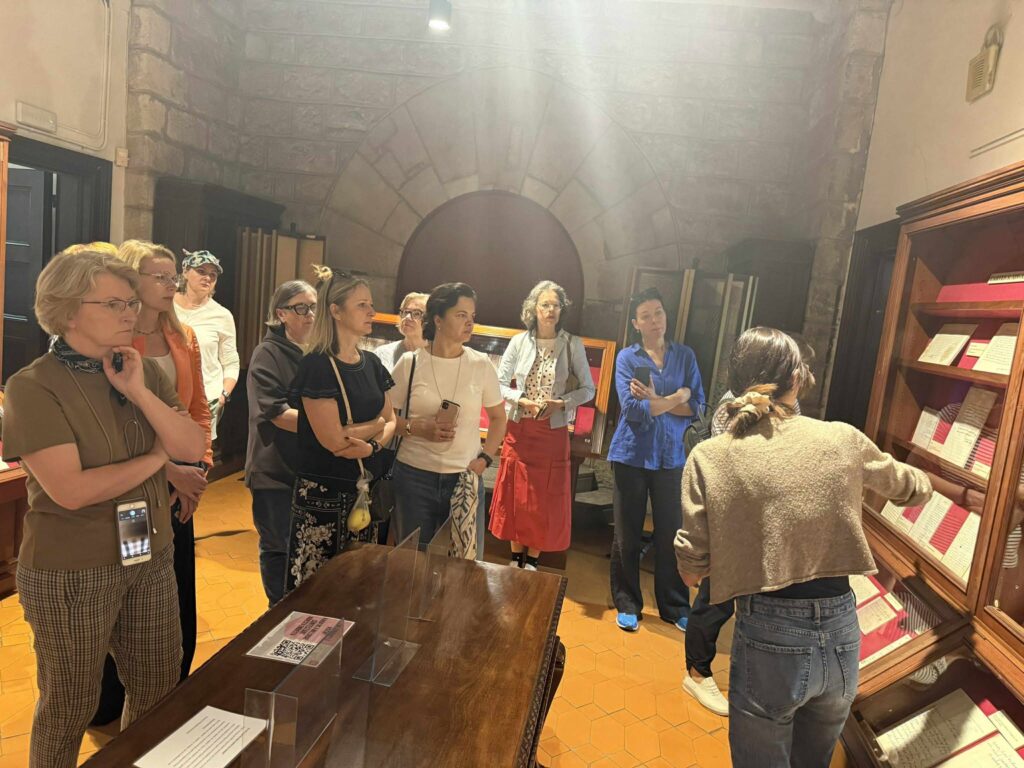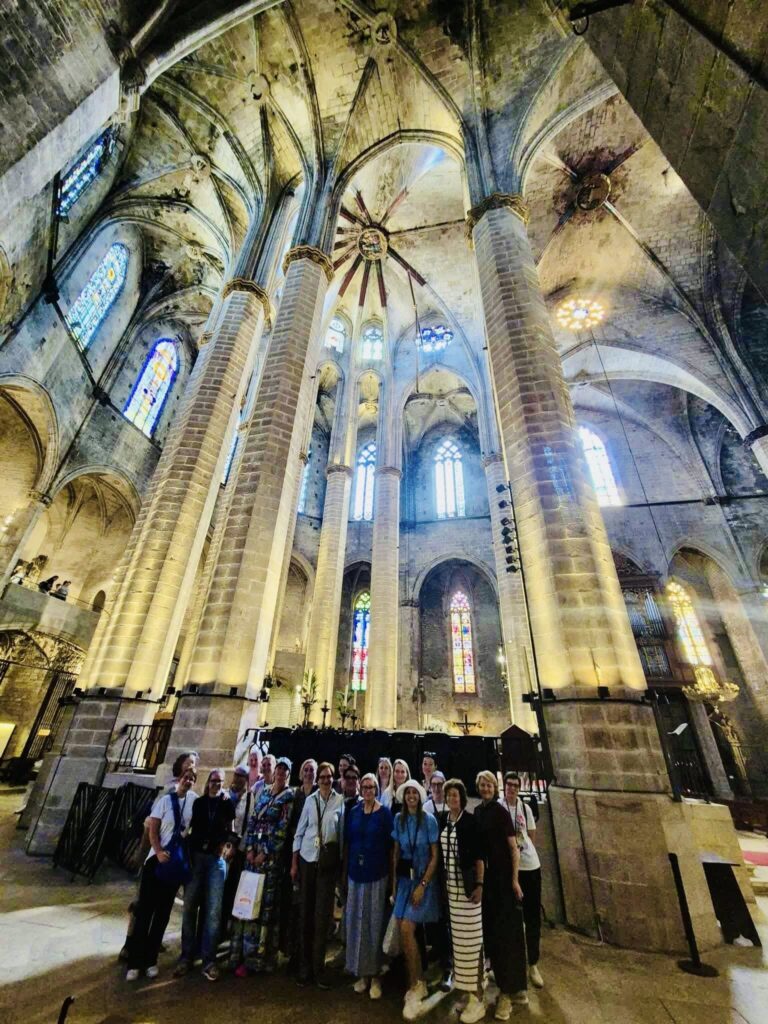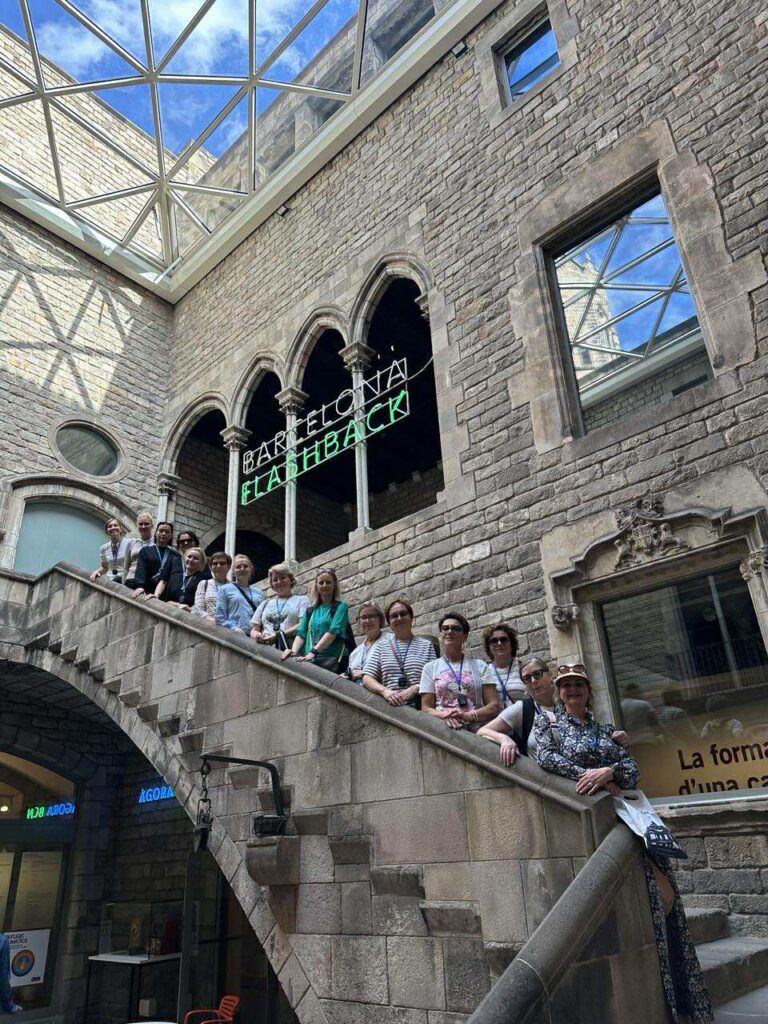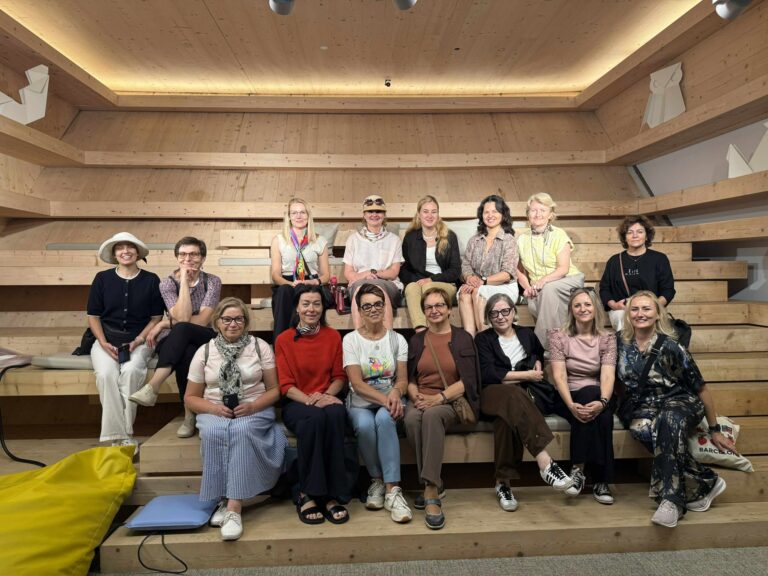As part of the Panevėžys County Gabrielė Petkevičaitė-Bitė Public Library Erasmus+” accreditation project in the field of adult education, a group of the most active members of the Bitė Book Club visited Barcelona in October.
The host organization was the Lithuanian-Catalan Association – a non-governmental cultural and educational exchange organization that promotes ties between Lithuania and Catalonia through events, publications, libraries and Lithuanian language cooperation. It also brings together literature enthusiasts who participate in a Lithuanian Book Club.
The learning trip had clear objectives: to participate in discussions on literature, art, and culture; improve discussion and communication skills; apply storytelling techniques in conversations; and deepen knowledge of the written word.
Over three days, participants engaged in various activities: they took part in a literary tour based on “Cathedral of the Sea” by Ildefonso Falcones, discussed exhibitions and art movements at the National Art Museum of Catalonia, and held debates and reflections with the Lithuanian Book Club using discussion, debate, and literary game methods.
These discussions encouraged participants to support their opinions with examples from literature, history, or personal experience, strengthening their ability to argue logically and persuasively. Storytelling methods played a key role in the learning experience: by sharing personal stories inspired by literature and museums, participants engaged emotionally, deepened intercultural understanding, improved communication and self-expression, and contributed to building shared cultural memory.
The club leader, Dr. Jūratė Baltušnikienė, emphasized that the Erasmus+ experience offered a unique perspective on “Cathedral of the Sea” – allowing participants to “touch” the places described in the novel and see them in real life. She described it as a kind of “3D experience” that reading alone cannot provide. Discussions with the Barcelona Lithuanian Book Club also highlighted cultural differences, opening up new spaces for interpretation and a deeper understanding of the literary work.
A blended mobility format was chosen for this Erasmus+ activity, meaning that after the in-person discussions in Barcelona, cooperation will continue: a virtual meeting is planned during which the Lithuanian and Catalan book clubs will discuss another selected literary work.
Another valuable part of the trip was visiting Barcelona’s libraries. The National Library of Catalonia impressed participants as a rich archive holding not only books but also, for example, recordings of radio songs. The historic building itself is notable – it once housed a hospital where Antoni Gaudí passed away. The library also preserves copies of letters by famous figures such as Salvador Dalí, Margaret Thatcher, and Elizabeth Taylor.
An unforgettable experience was the visit to the Gabriel García Márquez Public Library, which received the award for Best Public Library in 2003. Its impressive spaces are often called “Barcelona’s Guggenheim.” Under one roof, it welcomes diverse visitor groups, with a vibrant intercultural atmosphere and a wide range of literature – from Nordic works to comic books. The library hosts eight book clubs, led not only by librarians but also by public figures, journalists, and literary critics.
Cultural experiences added great value to the learning trip. Before traveling, the club had read books about Pablo Picasso, so museum visits naturally extended their reading. Earlier readings, such as “Confessions” by Jaume Cabré, also became part of the program as members searched for a painting mentioned in the novel – turning it into a literary adventure.
As one member, Sandra, said, “This was probably the best trip of my life because everything came together – shared interests, curiosity, learning, and discovery.” Such trips strengthen community bonds and enrich readers’ experiences.
Another member, Vida, highlighted how interesting it was to compare libraries and their societal impact. The combination of literary experiences, historical novels, contemporary interpretations, and the real spirit of place allowed participants not only to discover Barcelona but also to grow personally. It felt like “the best university in life” — learning and traveling with like-minded people, with literature as a bridge between cultures.
Photos of Bitė Book Club members
Virginija Švedienė
Coordinator of Adult Education Activities

